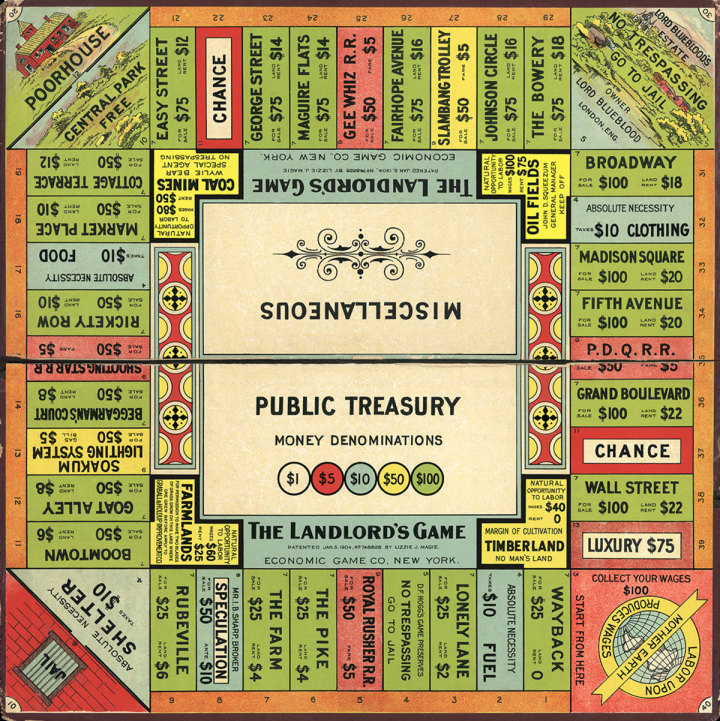

This is anything but an academic concern. In short, monopoly power is ascendant as never before. Formerly competitive sectors like retail are now the province of enormous monopolistic chains, massive economic fortunes are being assembled into the hands of a few mega-billionaires sitting atop vast empires, and the new firms and industries spawned by the digital revolution have quickly gravitated to monopoly status. On the other hand, wherever one looks, it seems that nearly every industry is concentrated into fewer and fewer hands.
PLANET MONEY MONOPOLY HISTORY VERIFICATION
It is a matter so self-evident as no longer to require empirical verification or scholarly examination. On the one hand, mainstream economics and much of left economics discuss our era as one of intense and increased competition among businesses, now on a global scale. This is a chapter from Foster and McChesney’s Monopoly-Finance Capital: Politics in an Era of Economic Stagnation and Social Decline, forthcoming next year from Monthly Review Press.Ī striking paradox animates political economy in our times. Jamil Jonna is a doctoral candidate in sociology at the University of Oregon. McChesney (rwmcches ) is Gutgsell Endowed Professor of Communication at the University of Illinois at Urbana-Champaign. John Bellamy Foster (jfoster ) is editor of Monthly Review and professor of sociology at the University of Oregon. (And with two sets of starkly different rules.) That story shows how a critique of capitalism grew from a seed of an idea in a rebellious young woman's mind into a game legendary for its celebration of wealth at all costs.Topics: Economic Crisis Economic Theory Political Economy Stagnation He brought Monopoly to the game company Parker Brothers in 1934 and eventually became a millionaire.īut there's another origin story – a very different one that promotes a very different image of capitalism. Mary Pilon, author of The Monopolists: Obsession, Fury, and the Scandal Behind the World's Favorite Board Game, dug into the origin story that was once included with every box of the game: A man named Charles Darrow was unemployed and came up with the game to pass the time. The game's staying power may in part be because of strong American lore - the idea that anyone, with just a little bit of cash, can rise from rags to riches. It's been an iconic part of American life: a cheap pastime during the Great Depression a reminder of home for soldiers during WWII an American export during its rise as a global superpower and a best-seller during the pandemic. Monopoly is one of the best-selling board games in history. Subscribe to Planet Money+ in Apple Podcasts or at /planetmoney It was fact-checked by Kevin Volkl and mixed by Josh Newell. The Throughline episode was produced by Rund Abdelfatah, Ramtin Arablouei, Lawrence Wu, Laine Kaplan-Levenson, Julie Caine, Victor Yvellez, Anya Steinberg, Yolanda Sangweni, Casey Miner, Cristina Kim, Devin Katayama, and Amiri Tulloch. This episode was produced by Emma Peaslee, mastered by Natasha Branch, and edited by Jess Jiang. For more about the origin story of Monopoly, listen to their original episode Do Not Pass Go. This episode was made in collaboration with NPR's Throughline. (And with two sets of starkly different rules.) That story shows how a critique of capitalism grew from a seed of an idea in a rebellious young woman's mind into a game legendary for its celebration of wealth at all costs. But there's another origin story – a very different one that promotes a very different image of capitalism.

Mary Pilon, author of The Monopolists: Obsession, Fury, and the Scandal Behind the World's Favorite Board Game. : Planet Money Monopoly is one of the best-selling board games in history. Monopoly is a board game built around capitalism.


 0 kommentar(er)
0 kommentar(er)
